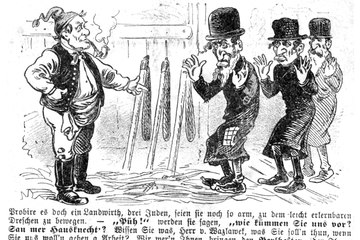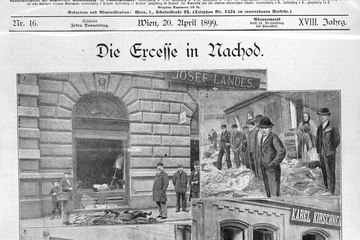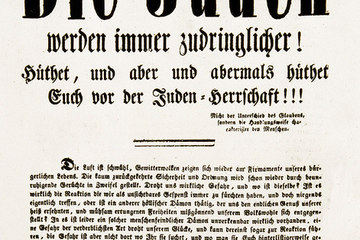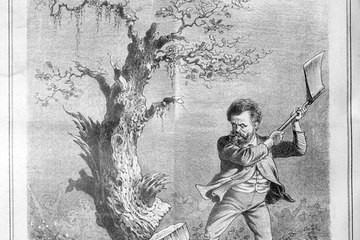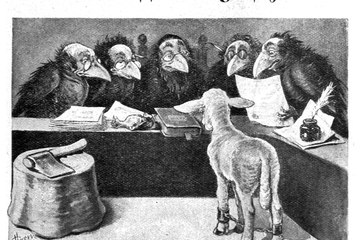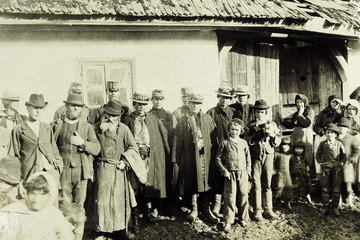Anti-Semitism and Jewish life at the time of the First World War
Around the turn of the 20th century, anti-Semitism became a political movement, raising hatred of the Jews to the status of an ideological programme and to a guiding principle for political activity. It was based on an ideology that stigmatised Jews as "the others" and presented them as a danger that threatened society. During the First World War, the 'internal peace' initially led to a wane in anti-Semitic agitation, but the unfavourable course of the war encouraged the anti-Semitic policy of exclusion. The political right adopted the method of attributing guilt to the imaginary group of the Jews. Anti-Jewish positions became socially acceptable and anti-Semitic excesses began to dominate everyday life.
Translation: David Wright


